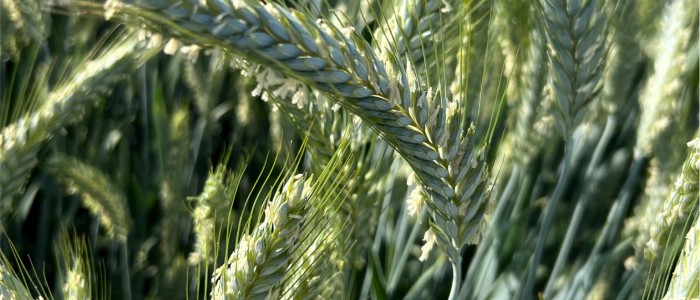-
 Turf Grass Seed Bluegrass, Bentgrass, Ryegrass, Fescues...
Turf Grass Seed Bluegrass, Bentgrass, Ryegrass, Fescues...
-
 Forage Seed Bromes, Clovers, Fescue, Wheatgrass, Legumes
Forage Seed Bromes, Clovers, Fescue, Wheatgrass, Legumes
-
 Grains Wheat Grain, Rye Grain
Grains Wheat Grain, Rye Grain
-
 Cover Crop Seed Buckwheat, Clover, Peas, Ryegrain
Cover Crop Seed Buckwheat, Clover, Peas, Ryegrain
-
 Wildflower Seed Mixtures, Singles, Annual, Perennial
Wildflower Seed Mixtures, Singles, Annual, Perennial
-
 Sprouting Seeds Fully certified Non-GMO Organic seeds for sprouts or microgreens
Sprouting Seeds Fully certified Non-GMO Organic seeds for sprouts or microgreens
Triticale Non-GMO Sprouting Seeds
Triticale is a hybrid of Wheat (Triticum) and Rye (Secale). It is a little sweeter than wheat, hardy, easy to sprout and grow, and very nutritious. Makes a great grain to store as emergency food storage. This sweet juicy sprout is perfect for juices and smoothies. It is also tasty and nutritious fodder for chickens, cats and rabbits – they love it!
Seeding Rate:
Indoor: 8-12 oz./ 10”x 20” tray
Outdoor: 70-100 lbs./acre
How to Grow: Soak seeds overnight. Drain and rinse. Sow in well drained loamy soil (hydroponic or coco-coir mediums can also be used). Spread seed evenly across moist medium. Mist the seeds twice daily and cover until germinated (1-2 days). Water trays from bottom up and place under grow lights for 17 hours daily. Harvest in 6-10 days at about 4” tall. Cut with sharp knife or scissors just above soil line. The microgreens can be stored in the refrigerator in a sealed container for up to one week.
Cover Crops: Triticale is a beneficial cover crop that will increase soil fertility, quality and productivity. It aids in weed suppression and helps control pests and corrosion. Triticale features rapid growth, a robust root system, dense canopy, excellent winter hardiness and strong disease resistance. It is also highly adaptable.
Nutritional Value: Sprouting seeds are richer in protein, folate, magnesium, phosphorus, manganese and vitamins C and K than un-sprouted plants. The vitamin and mineral content varies based on the variety of the sprouting seeds. Sprouts offer a powerful source of vitamins, minerals, antioxidants, and enzymes that fight free radicals because sprouting can increase their potency by 20 times or more.

